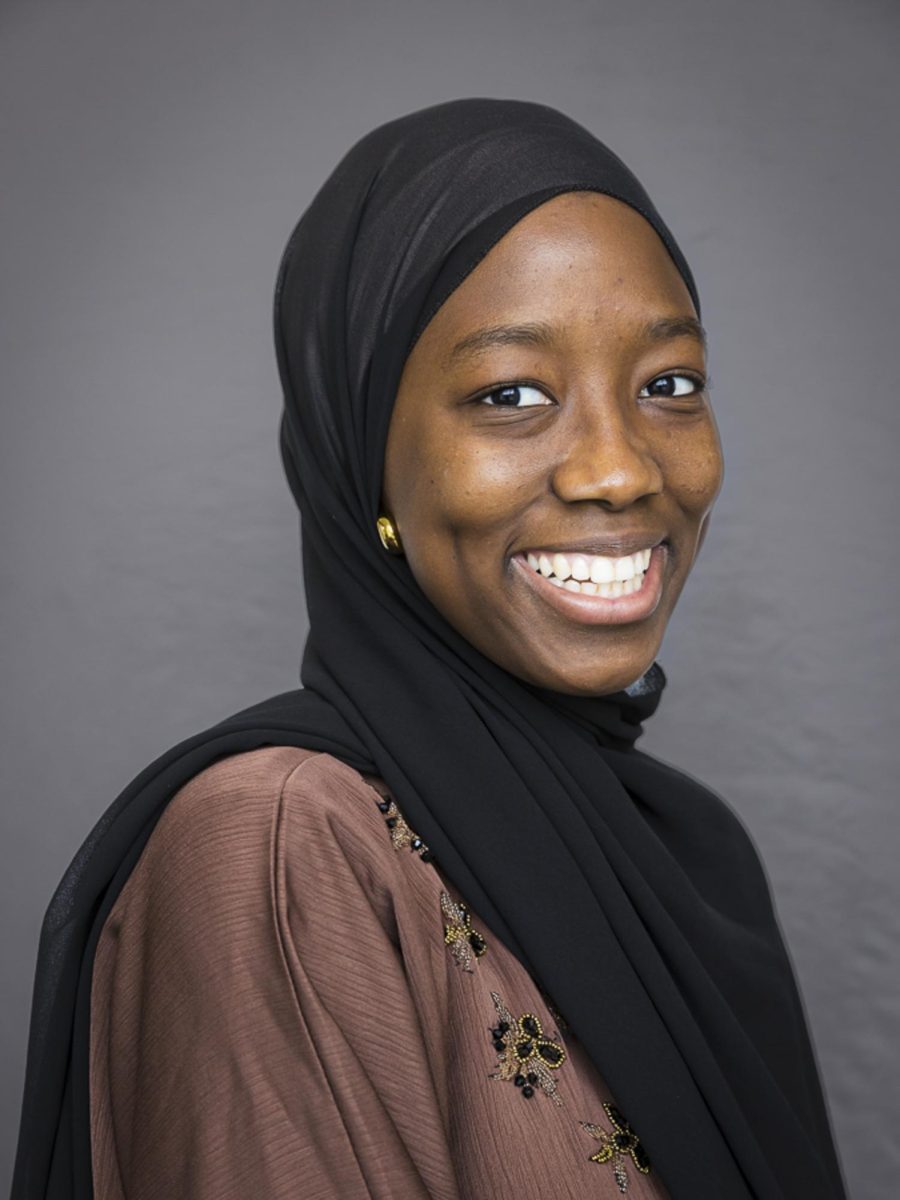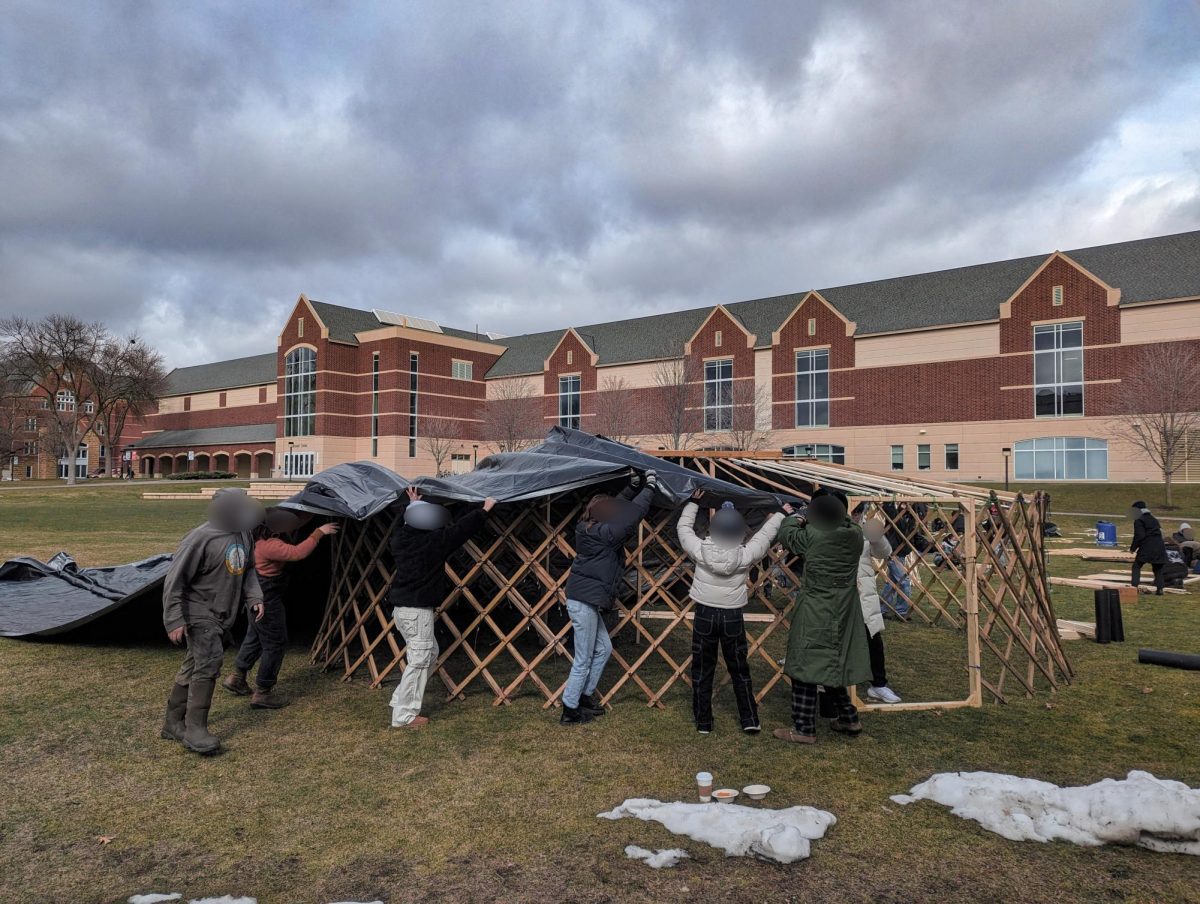A recent survey of the Macalester student body revealed that 64 percent of respondees consider themselves to have ever experienced, or are currently experiencing, mental health issues — including forty-seven percent who said they had felt so depressed over the past year that they found it difficult to function. The numbers are startling, and can be seen as a call to action to seriously evaluate how society can better address mental health issues. But this isn’t a survey of the greater population: these numbers represent Macalester.
Last fall, MPIRG’s Health, Gender, and Sexuality (HUGS) Task Force, along with the student organization Active Minds, commissioned a survey to the student body to gauge their feelings on mental health issues and the school’s response to them. This survey is one of many ongoing initiatives currently underway at Macalester to change the conversation around mental health on campus, increase awareness of mental health difficulties and push for more resources from the school.

Re-establishing Active Minds
Active Minds led much of the recent conversation. The national organization has over 400 chapters, aiming to raise mental health awareness among college students and provide them with outlets for support.
“Active Minds is … dedicated to changing the conversation around mental health on college campuses, such as eradicating the stigma to allow students to get the help they need,” said Mariah Geiger ’15, founder and former co-chair of the organization’s Macalester chapter.
Active Minds had a presence at Macalester a few years ago but falling interest caused the organization to become defunct. Geiger revived it at the beginning of the fall semester.
Throughout the year, Active Minds has been promoting events to increase support for mental health on campus, including discussion panels and outreach events. Last semester, the organization tabled outside the Campus Center and asked people for their thoughts on mental health to promote World Mental Health Day, and organized a panel called Voices on Mental Health, where students spoke about their own experiences with mental health issues.
Events have been well-attended, said Ollin Montes ’17, an active member of the organization.
“It really speaks to the fact that this is an issue a lot of students believe affects them, that they want to talk about,” Montes said.
“That was a good way to get a face and a voice, to say, this is me, and this is what my experience has been,” Geiger said.
Active Minds is in the middle of a lunch series on different mental health issues. The first discussed mental health as it relates to race and class. A panel on Thursday focused on mental health and masculinity, and the third will explore the links between Macalester and mental health.
In addition, Active Minds meets regularly to discuss related topics and provide a supportive network for its members.
“It’s such a great and neat space to talk about mental health challenges, and the issues students face on campus — some of the cultural issues that exist, not just on campus but basically in American society — this lack of willingness to talk about mental health issues and mental health challenges,” Montes said.
Survey partnership with MPIRG

One of Active Minds’ main initiatives was conducted in collaboration with MPIRG’s Health, Gender, and Sexuality (HUGS) Task Force, and involved polling the student body on their feelings about mental health on campus.
Last spring, MPIRG discussed the potential for a school-wide survey on these issues. In the fall the advocacy organization partnered with Active Minds to solicit their thoughts on the survey before sending it out.
According to Amy McMeeking ’16, co-chair of the HUGS task force, MPIRG has a general interest in mental health and student wellness issues and decided to start small by polling the school.
“We knew there could be lots of things that could be better about counseling services,” she said. “We also knew that Health and Wellness had a budget freeze, so there wasn’t a lot they could do immediately.”
The goal of the survey was to identify the school’s biggest needs, and use that data to convince school officials like members of the Board of Trustees, to place a higher priority on mental health.
“We sent out the survey to get information to show the college that Health and Wellness and these issues are important to people on campus and they need to be addressed, and to show people on-campus suffering from these issues that they are not alone,” Active Minds co-chair Mackenzie Woolf ’14 said.
“The main goal was we felt Health and Wellness and Counseling Services weren’t providing what the student body might need, but we didn’t know what the student body might want,” Geiger said. “If we were going to approach counseling services about improving, we wanted to have evidence about what might be improved.”
A total of 460 students responded to the survey that was sent to the entire student body, which asked about people’s individual histories with mental health, as well as the effectiveness of resources provided by the school.
The results showed that a majority of the student body have experienced mental health issues. One-fourth of respondents reported being diagnosed with either depression or anxiety, and roughly half felt like depression or anxiety interfered with their ability to function.
“Even if you’re not diagnosed, even if you’re not on medication, these issues can affect you and you’re not the only one out there,” Wolf said.
More than 60 percent of students expressed support for a potential small fee which would provide more mental health care options, such as increased programming and services offered through the Health and Wellness Center.
The survey also polled on whether students had sought on-campus counseling and how they evaluated their experiences with those resources. 38 percent reported attempting to obtain on-campus counseling — 29 percent were able to get an appointment and nine percent were not. Many students had little interest in off-campus counseling services.
The results provide a feeling of unity among students struggling with mental health issues, as well as drive the conversation forward on what steps the school must take, said Woolf.

“I just want to affirm the fact that so many students I’ve seen step forward and share challenges they’re facing … it’s really encouraging to see that increased level of authenticity on campus. There’s this palpable shift that’s happening in our community,” Montes said.
Reaching out, looking forward
With survey results in and more events underway, Active Minds is currently seeking to capitalize on these increased conversations to create a change in how the school addresses mental health. The group has been working actively with the Health and Wellness Center, meeting with Associate Director Ted Rueff to discuss the results and potential paths going forward.
Like many other members of Active Minds, Montes said he thinks that the Health and Wellness Center does not have enough resources to provide adequate support.
“We are on the same page. We’re trying to navigate knowing we have a limited set of resources. There exists this unfortunate perception that Health and Wellness is not acting in the best interest of students, when in fact they are. They’re operating within the limited set of resources they have available to them, trying to make ends meet with that,” Montes said.
Through meetings with Rueff, Vice President for Student Affairs Laurie Hamre, and Student Liaison to the Board of Trustees Alvin Kim ’14, members of both organizations are uniting around this issue to create progress.
These meetings led to proposals like peer support groups, expanded off-campus resources, a mental health support services fee, and peer education programs.
“Student frustration is legitimate, but we should all take a moment and take that conversation not to Health and Wellness, but to those that determine the resources that Health and Wellness has,” Montes said.
According to Rueff, administrators have been “very receptive.”
“Everyone seems to understand that these are not challenges to HWC alone but for the campus community as a whole and that solutions will entail a coordinated effort,” Rueff wrote in an email. “There’s a keen awareness at Mac of how campuses across the country have experienced a growth in demand for services, coupled with an increase in the severity of presenting concerns, and how these needs have outpaced the growth in campus resources.”
Rueff said that the school has increased funding for Health and Wellness to hire additional temporary staff next year to meet growing demand.
“I’ve been heartened by the willingness of the college to engage collaboratively in addressing the concern and I feel there are some really creative ideas on the table,” Rueff said. “A little revisioning is certainly called for, and the College has shown itself to be willing and constructive partners in this regard.”
Hamre called the meeting with MPIRG and Active Minds “informational and extremely productive,” where they discussed their concerns and proposed solutions with her.
Path forward
In light of all the increased dialogue surrounding this issue, members of Active Minds and MPIRG have reasons to be optimistic.
“A large percentage of the student body gave a lot of really clear feedback on what could be done [through the survey] … based on the relationship and collaboration with Health and Wellness, so far, I think it’s going to get done,” Geiger said.
The organization hopes to continue conversations on-campus, elevating it to the Board of Trustees, where more solid commitments to funding mental health services can be obtained.
“We’re trying to air that concern to the Board of Trustees. What’s dependent on this is building student support. We’re going to try and create spaces where people can voice that support. With that, we’ll be able to address these needs. We’ll make the administration and Board know that we need to prioritize mental health services more than we are now. There’s an increased demand and our community doesn’t have the resources to address that need right now,” Montes said.
If nothing else, the presence of Active Minds on campus is becoming invaluable, providing a forum for these discussions to take place.
“Over the past year, this has become a really amazing, really strong community, and I believe so, so much in it,” Geiger said. “It’s not specifically about the survey results, but having this coalition of people who believe so strongly in this — I just know things are going to keep improving and we’re going to keep having this really good conversation across campus.”














David Mackenzie • Sep 11, 2019 at 8:06 pm
Hello there, I found your website via Google while searching for a related topic, your website came up, it looks good. I have bookmarked it in my google bookmarks.
Adrian Gray • Sep 10, 2019 at 1:57 pm
Sweet internet site, super design, really clean and utilise pleasant.
Steven MacDonald • Sep 6, 2019 at 2:48 am
The subsequent time I read a blog, I hope that it doesnt disappoint me as much as this one. I mean, I do know it was my choice to learn, but I actually thought youd have something interesting to say. All I hear is a bunch of whining about something that you would fix for those who werent too busy on the lookout for attention.